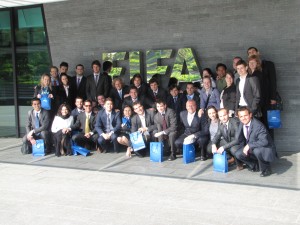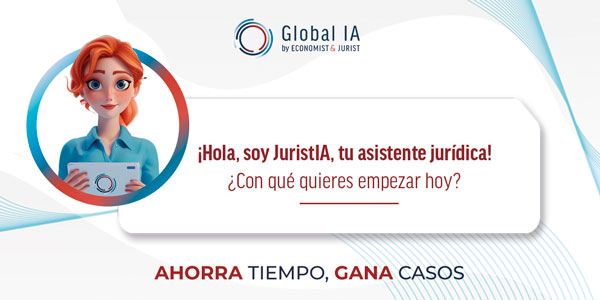The FIFA solidarity contribution mechanism in international transfers

The FIFA solidarity contribution mechanism in international transfers

Alexander JACOBS · Legal Counsel at FIFA
In the world of football, a specific mechanism exists that was created by Fédération Internationale de Football Association (“FIFA”) to reward training clubs for their investment in training and educating young players and it was consequently christened as the “solidarity mechanism” or “solidarity contribution” (“SC”). The relevance of this mechanism has only increased over the years considering that transfer fees have ballooned, more international transfers are taking place and smaller clubs have more financial needs than ever before. Although it only accounts for a relatively small financial portion (5% of the transfer fee), its presence in every international transfer makes it a very relevant and common issue in the world of football.
Despite its relevance and omnipresence, much uncertainty exists with regard to the practical application of this mechanism: the process from transfer to payment of the mechanism. This uncertainty is reflected in the (seemingly) polar opposite positions of FIFA on the one side (with its Regulations and jurisprudence) and the Court of Arbitration for Sport (“CAS”) on the other side (with its Awards).
Suscríbete a nuestra
NEWSLETTER

Master International Sports Law
www.isdemasters.com
Your gateway to the Worldwide Sports Law Industry
In many transfers, the parties (or one of the parties) want to (contractually) shift the burden of payment of the solidarity mechanism to the buying club.The FIFA Regulations and Decisions are very strict in the sense that they require a mandatory deduction of the solidarity amount from the transfer fee. CAS conversely appears to enable alternative mechanisms outside of deducting. This thesis aims to analyze the FIFA Regulations, look at their evolution, and analyze the relevant FIFA decisions and the consequent CAS jurisprudence to conclude whether or not the Clubs may/can contractually deviate. Additionally, the practical implications of such will be highlighted.
2. ANALYSIS
A. Structure of FIFA and its Regulations:
It is particularly relevant to consider the structure of FIFA, the way its regulations are created and the way these regulations are practically applied and result in jurisprudence. Based on article 5 of the FIFA Statutes of October 19, 2003, the Executive Committee has issued the “Regulations on the Status and Transfer of Players” (“RSTP”) and its annexes:
“The Executive Committee shall regulate the status of Players and the provisions for their transfer, as well as questions relating to these matters, in particular the encouragement of player training by Clubs and the protection of representative teams, in special regulations”.
The scope of the RSTP is the following:
“These regulations lay down global and binding rules concerning the status of players, their eligibility to participate in organised football, and their transfer between clubs belonging to different associations”.
In the event of disputes between parties regarding an application of the RSTP, the Players’ Status Committee (“PSC”) and Dispute Resolution Chamber (“DRC”), are competent to deal with the matter as set out in the FIFA “Rules Governing the Procedures of the Players’ Status Committee and the Dispute Resolution Chamber”. The PSC is a FIFA standing committee which monitors compliance with the RSTP. The PSC/DRC are essentially functioning as a judicial body/arbitration commission in these matters as part of the FIFA Dispute Resolution System. The DRC in presiding over a dispute, essentially applies or monitors the correct application of the RSTP in the given circumstances and in the process develops consistent jurisprudence (in essence a practical application of the regulations in different circumstances and factual situations).
The result of this development of jurisprudence is that this becomes an essential part of the Regulations. It is nothing else than a bundling of practical applications of the regulations by a FIFA judicial body and is therefore an essential part of it, as it provides substance to the latter.
When CAS Panels “shall decide the dispute according to the applicable regulations and the rules of law chosen by the parties” pursuant to article R58 of the CAS code, which are in casu the various regulations of FIFA cf. article 66 (2) of the FIFA Statutes: “CAS shall primarily apply the various regulations of FIFA and, additionally, Swiss law.”
CAS Panels should therefore not only have due consideration for article 21 and articles 1 and 2 of Annex 5 of the RSTP but also, and more importantly, for the jurisprudence developed by the DRC in practically applying these regulations. This is important because it has been established in past CAS awards that the (FIFA) Regulations should be interpreted by the CAS in a way “which seeks to discern the intention of the rule maker, and not to frustrate it”.1 This is a very important point when considering the CAS’s role in applying the FIFA Regulations and in arriving to a conclusion on the matter.
B. FIFA RSTP and DRC jurisprudence on solidarity contribution:
The procedure that governs the solidarity mechanism is explained in Annex 5 of the RSTP. The mechanism is straightforward and simple in the sense that: “5% of any compensation, not including training compensation paid to his former club, shall be deducted from the total amount of this compensation and distributed by the new club as a solidarity contribution to the club(s) involved in his training and education over the years (…)”.
The first important phrases in article 1 of Annex 5 RSTP with regard to the solidarity contribution are “shall be deducted”. These three words are unambiguous and leave no room for interpretation or imagination.
1 CAS 96/149, A. C. v/ FINA, Award of 13 March 1997, in REEB (ed.) Digest of CAS Awards 1998, p. 251, 259; CAS 2001/A/317, A. v/ FILA, Award of ) July 2001, p. 16
The wording thereof was not chosen by chance or haphazardly. It serves a very specific purpose.
“shall be”: the usage of the wording shall is to express a strong assertion or intention. It is the strongest phrase to indicate a future action. Seemingly, no room is left for any alternatives since otherwise FIFA would have employed the word “may”. Which it did not.
“Deducted”: means “subtract or take away (an amount or part) from a total”. The choice of wording is no coincidence. As a matter of fact, this wording was explicitly included in the 2005 RSTP (while that was not the case in the 2001 RSTP). Although the Commentary on the RSTP also mentions “retain” once (par. 1), it is clear from the wording throughout the Commentary on article 1 of Annex 5 that “deducted”/”deduction” is the key term (par. 4 and 7).
The DRC’s well-established jurisprudence in these cases, is that the player’s new club is the one that shall remit the relevant proportion(s) of the 5% solidarity contribution to the club(s) involved in the player’s formation. However, the financial burden of the solidarity contribution rests de facto – in light of the DRC’s long-standing jurisprudence – with the player’s former club, as the player’s new club is required to deduct 5% out of the total transfer compensation to be paid to the player’s former club and
distribute it accordingly among the club(s) that contributed to the training and formation of the player.
Since the entry into force of the 2010 edition of the RSTP, DRC jurisprudence has been very consistent. One of these decisions was published by Circular dated December 7, 2010. FIFA sent this Circular to all its affiliated members, which is an undeniable signal that FIFA considered this ruling to establish the standard of reference:
“20. Based on all of the above, and recalling that the solidarity contribution cannot be added to the agreed transfer compensation but, on the contrary, has to be deducted from such compensation, the Chamber considered that the Claimant has already received the solidarity contribution relating to the relevant transfer of the player and possibly received more than it is entitled to, should there be other clubs that contributed to the training and education of the player.” (p. 13 par. 20)
In the past, CAS panels have considered that these circular letters are relevant for the interpretation of the FIFA Regulations considering that they reflect the understanding of the FIFA and the general practice of the federations and associations belonging to it. This is explicitly stated in the CAS case CAS 2006/A/1018 (p. 5, par. 11). Additionally, it is also important to refer to the DRC’s long-standing jurisprudence herein which is clearly exemplified by the Single Judge of the PSC’s decision passed on January 30, 2012 (p. 4):
“7. The Single Judge further stressed that the obligations derived from the solidarity mechanism, in particular, the obligation of the player’s new club to deduct from a particular transfer compensation the relevant share of solidarity contribution in order to distribute it to the club(s) concerned as well as the obligation of the player’s former club to reimburse that same share of solidarity contribution in the event that the player’s new club omitted to deduct the relevant share, are now well-established principles and cannot be derogated from, even by means of specific contractual clauses that parties signing a transfer contract might agree upon.
The same viewpoint was recently confirmed again, in the DRC’s decision dated August 28, 2014:
“11. In this respect, the DRC was eager to emphasize that the solidarity mechanism is a principle well-established in the Regulations, from which the parties signing a transfer contract cannot derogate through the contents of a contract. In other words, the obligation to distribute solidarity contribution in accordance with the Regulations cannot be set aside by means of a contract concluded between the clubs (…) Therefore, a strict application of the rules regarding solidarity contribution should be followed and, hence 5% should have been deducted (…)”.
As evidenced by the above decisions, the principles of FIFA with regard to the solidarity contribution mechanism are crystal clear. Not only are the Regulations unambiguous in their wording, jurisprudence has been consistent over the years and is therefore very well-established.
C. CAS jurisprudence on solidarity contribution:
When analyzing the relevant CAS jurisprudence on the present matter and the solidarity mechanism, it appears as though CAS panels have enabled parties in a transfer to contractually deviate from the strong wording of the FIFA Regulations in allowing alternative (contractual) ways of payment of the mechanism instead of deducting this from the transfer fee. As will appear from the analysis below, most of the CAS jurisprudence was based on the old (2001) RSTP. The most important decision with regard to the solidarity mechanism is CAS 2006/A/1018 in the case C.A. River Plate v. Hamburger S.V. This case forms the basis for all other relevant CAS jurisprudence on the subject. However, the circumstances and Regulations in force applicable to this first “big” case were vastly different. It should be noted as well that there is no principle of binding precedent (“stare decisis” or “collateral estoppel”) in CAS Jurisprudence. Not all CAS jurisprudence is created equal as the factual circumstances of the cases, as well as the applicable regulations or laws, may vary substantially depending on the time period etc. Not all CAS panels have taken this into due consideration.
i. CAS 2006/A/1016 (C.A. River Plate v. Hamburger S.V.):
Firstly, it should be duly noted that the abovementioned award required an application of the 2001 RSTP, which was the first RSTP adopted as a result of FIFA’s agreement with the European Commission.
Article 25 (article 1 of Annex 5 in the 2010 FIFA Regulations) of the 2001 RSTP contains vastly different wording in comparison with the 2005/2010 RSTP. In fact, there is a fundamental difference which is worth remarking:
Article 25 of the FIFA Regulations 2001:
“If a non- amateur player moves during the course of a contract, a proportion (5%) of any compensation paid to the previous club will be distributed to the club(s) involved in the training and education of the player”.
Article 1 of Annex 5 of the FIFA Regulations 2005/2010:
“If a professional moves during the course of a contract, 5% of any compensation, not including training compensation paid to his former club, shall be deducted from the total amount of this compensation and distributed by the new club as a solidarity contribution to the club(s) involved in the training and education of the player”. [new additions marked, emphasis highlighted]
As evidenced by the above comparison, the two editions of the RSTP contain the same basic principle with regard to the solidarity contribution but contain a fundamental change in the method of retaining (i.e. deducting) and distributing it. The way the 2005/2010 FIFA Regulations organize the distribution is by firstly deducting the amount of the compensation: “shall be deducted”. As opposed to merely referring to a proportion of the compensation that is to be distributed, as was the case in 2001: “(…) a proportion of any compensation (…) will be distributed”.
The Panel in the 2006/A/1016 case was required to interpret article 25 of the 2001 RSTP (article 1 annex 5 of the 2010 RSTP) and conclude whether or not the 5% mentioned in the 2001 RSTP was supposed to be deducted or not considering the article does not mention this (“Do Art. 25 of the FIFA Regulations 2001 and Art. 11 of the FIFA Application Regulations 2001 provide for a deduction from the transfer fee or not?”). At the time, the system provided that the 5% could be “retained” by the receiving club (but it was not to be mandatorily deducted as this was not a prerequisite in the RSTP).
The Panel ultimately recognized (based on CAS jurisprudence CAS2006/A/1026 & 1030) the principle of deduction, even if it was not explicitly provided for in the Regulations. The FIFA RSTP was just in force at the time and was not as developed. Parties in these circumstances were free to contractually agree to any modalities (including deduction) as long as the solidarity contributions were “distributed” considering that the RSTP did not provide otherwise at the time: “Art. 25 of the FIFA Regulations provides only that a proportion of 5% of any transfer compensation is to be distributed”. That is why the Panel in this case was not opposed to the Parties contractually agreeing otherwise. Since deduction was not mandatory (it was not expressly stipulated in the Regulations), parties were free to exclude deduction through their agreement:
“Although it appears logical and common ground that the acquiring club should in general withhold such 5% from the amount paid to the previous club, the FIFA Regulations [2001] do not prevent the clubs to agree otherwise, such as in the present circumstances, and to provide that the transfer fee shall be paid without any deduction (…) The Panel considers that, by doing so, the parties did not commit any unlawful circumvention of FIFA Regulations”.
As evidenced by the differences in the 2010 RSTP, FIFA has adjusted its Regulations to deal with abuses. Therefore FIFA included – so as to provide for clear regulations – as to how these amounts were to be retained/withheld: “shall be deducted”. This is a fundamental difference as the 2005/2010 RSTP does “prevent the clubs to agree otherwise”, as evidenced by the wording.
The mentioned award demonstrates the finding that parties are not free under the 2010 (and current) RSTP to choose the way these amounts are “retained” or “withheld”, they are now mandatorily to be deducted because the Regulations say so explicitly: “shall be deducted”. By doing otherwise, the Parties would commit an unlawful circumvention of FIFA Regulations.
ii. Other CAS jurisprudence based on CAS 2006/A/1016
It is important to note that the relevant considerations and principles in the abovementioned case served as the basis for the other CAS cases: CAS 2008/A/1544 (RCD Mallorca v. / Al Arabi) and CAS 2009/A/1773 & 1774 (Borussia Vfl 1900 Mönchengladbach v. / Club de Fútbol América S.A. de C.V. (Asociación Atlética Argentinos Juniors/Argentina)).
These two awards consequently served as the basis for the CAS case CAS 2012/A/2707 (AS Nancy-Lorraine v. FC Dynamo Kyiv).
It should be duly noted again that the case CAS 2006/A/1016 is based on the 2001 Regulations which did not provide for an obligatory deduction but merely required distribution (although the panel had recognized that deduction was “clearly required”). Consequently, a contractual deviation which excluded deduction was not prohibited by the 2001 FIFA Regulations, simply because there was no provision in the Regulations that required otherwise. In 2005 however, FIFA included “shall be deducted”. From that point forward any contractual deviation excluding deduction would be contrary to the Regulations. Nevertheless, the mentioned cases continued to refer to the case which was based on a completely different basis. This becomes more evident when meticulously analyzing these 3 cases (i.e. CAS 2006/A/1016 as opposed to CAS 2008/A/1544 and CAS 2009/A/1773 & 1774).
In the case CAS 2008/A/1544, the Panel recognizes that the CAS jurisprudence at the moment of the award contains no express interpretation of the 2005 edition of the RSTP and therefore refers to CAS 2006/A/1018, from which it quoted as follows (p. 8, par. 25):
“FIFA Regulations 2001 and the FIFA Application Regulations provide for a mechanism which clearly required from the Respondent to deduct from the transfer fee the amount due to the training clubs”.
Based on this part of the CAS 2006/A/1018 decision, one could indeed conclude that the 2001 Regulations already foresaw in this mandatory deduction. It seems however as if the Panel (of 2008/A/1544) missed the point when it ignored the final paragraph of the relevant part, where it is stated that the solidarity mechanism should indeed be withheld BUT that the 2001 Regulations do not prevent the Parties to agree otherwise (while the 2005 Regulations obviously do, considering the change of wording “shall be deducted” that was newly added, as argued above):
“Although it appears logical and common ground that the acquiring club should in general withhold such 5% from the amount paid to the previous club, the FIFA Regulations [2001] do not prevent the clubs to agree otherwise, such as in the present circumstances, and to provide that the transfer fee shall be paid without any deduction (…) The Panel considers that, by doing so, the parties did not commit any unlawful circumvention of FIFA Regulations”.
The case CAS 2009/A/1773 & 1774 in its turn is entirely based on the two abovementioned cases (i.e. CAS 2006/A/1018 and CAS 2008/A/1544) while the CAS case CAS 2012/A/2707 is based on CAS 2008/A/1544 and CAS 2009/A/1773 & 1774. All cases revert back to the same basis, the basis provided in CAS 2006/A/1016.
In summary, the first important CAS award on the subject ruled that although it is evident that the amount should be deducted, the 2001 Regulations do not impose a deduction, therefore allowing clubs to agree alternatively. A fundamental change ensued in 2005 when FIFA imposed a deduction: “shall be deducted”.
In my opinion, CAS jurisprudence never fully adjusted to this new wording and continued to refer to the original CAS award of 2006 which was based on the (fundamentally different) 2001 Regulations.
D. Practical case and implications:
The best way to demonstrate the relevance of the exact wording of the FIFA Regulations, is by providing a practical example. I was fortunate enough to work on this case (which for confidentiality purposes I will not disclose), which was recently subject of CAS proceedings.
Italian Club X (buying) and French Club Y (selling) agree to the transfer of Bosnian Player X. The transfer agreement stipulates that Club Y is to receive a net amount of 11 MIL EURO and also explicitly states that the transfer compensation does not include the solidarity contribution which will not be deducted. Instead of deducting, Club X paid solidarity contributions on top of the 11 MIL to Clubs A and B.
Club Y filed a claim before FIFA to receive its share of solidarity contribution. Club X filed a counter claim demanding Club Y to reimburse the solidarity contribution paid on top of the transfer fee, to clubs A and B. The DRC decided that Club Y was to reimburse Club X for the solidarity contribution paid to Clubs A and B as it recognized that the contribution was to be deducted.
The first significant issue in the abovementioned example is the following: on which basis is the SC calculated for Clubs A and B? On the only amount mentioned in the transfer agreement (and TMS), i.e. 11 MIL EUR. Should we follow the position that enables a contractual deviation from the FIFA regulations, Club Y would be entitled to an additional payment on top of the 11 MIL transfer fee.
The solidarity mechanism construed by the FIFA Regulations as an amount that includes the transfer fee (95%) and the solidarity contribution (5%) would be endangered because that would lead to the following situation:
the total transfer fee would not amount to 11.000.000 EUR but would have to include the solidarity contribution to be paid to Club Y at a later stage;
the amount serving as the basis for the calculation would not be 11.000.000 EUR since this amount would only constitute 95% of the transfer compensation. The solidarity contribution to which the training clubs are entitled would consequently have to be recalculated and redistributed.
In casu, and if it would be considered that Club Y was entitled to receive an amount of 11.000.000 EUR net of any deduction, the amount upon which the solidarity contribution would have to be calculated amounts to only 95% of the transfer fee. A 100% would then amount to 11.578.947 EUR. This would create great legal uncertainty as training clubs would no longer be certain as to the amounts they are entitled to, which severely disadvantages them. Private agreements between transferring clubs could increase or decrease the basis for the calculation of the amounts the training clubs are entitled to per the solidarity contribution mechanism.
The DRC explicitly mentioned these issues in its decision dated August 28, 2014:
“(…) it would further be to the detriment of the training clubs, which received solidarity contribution on the basis of the transfer fee of EUR 11,000,000 and not EUR 11,578,947. Therefore a strict application of the rules regarding solidarity contribution should be followed and, hence, 5% should have been deducted from the EUR 11,000,000 and distributed to the club(s) involved in the player’s training and education”.
In the abovementioned case CAS 2008/A/1544, the panel attempts to interpret FIFA’s position by stating “(…) FIFA is keen with its rules to make sure that no internal arrangement between transferring club and new club can anyhow complicate the legal position of such other clubs that are entitled to solidarity contribution” (par. 76). As stated above, by excluding deduction by way of internal arrangement, the clubs are in fact severely complicating the legal position of other (often much smaller) clubs. The training clubs have no certainty as to what the total compensation amounts to. Smaller training clubs do not have the financial means nor the legal expertise to discover the total amount if it was not properly disclosed. As a result they are severely disadvantaged.
Said approach would in my opinion, contravene the DRC’s well-established jurisprudence as Club X would have to allocate additional funds towards the distribution of the solidarity mechanism.
Such a calculation – in contradiction with the FIFA Regulations – would endanger the uniformity of the whole solidarity system, create confusion as well as an unjustified inequality of treatment between training clubs and finally compromise the security and the foreseeability of the law.
3. CONCLUSION
It has become very apparent from all the above considerations that the topic of solidarity contribution and its mechanism is trickier than one would expect from the outset. One of the first issues deals with the fundamental question as to how this specific issue of the solidarity mechanism is to be evaluated. The absolute primacy of the FIFA Regulations is widely recognized and accepted. After all, it is embedded in article 66 (2) of the FIFA Statutes and prescribed by article R58 of the CAS Code. CAS Panels designated to decide on matters involving FIFA Regulations “shall decide the dispute according to the applicable regulations”. It has been strongly reiterated that CAS Panels not only need to apply the Regulations as such, but as importantly, also the consistent and well-established FIFA jurisprudence that has been developed over the years in practically applying these Regulations and has become established FIFA practice.
Considering the mentioned primacy of the FIFA Regulations, one should have due regard for the specific wording of these Regulations with regard to the solidarity mechanism, specifically the 3 repeatedly mentioned and therefore fundamental words: “shall be deducted”. If Parties agree through internal contractual arrangements that one of the Parties is to receive a sum of which no solidarity contribution is deducted, the Parties are not deducting but adding. By adding as opposed to deducting, the Parties are violating the applicable Regulations which do not leave any freedom to retain the contributions by any other mechanism. These principles have been part of consistent FIFA jurisprudence for years and have given substance to the Regulations by practically applying them.
As demonstrated above, the FIFA Regulations have developed over the years. The 2001 RSTP being vastly different from the 2005 RSTP. One of the first important CAS cases on the topic, was CAS 2006/A/1016 and related to the 2001 RSTP. Although the Panel recognized the concept/principle of deduction, it concluded that the 2001 RSTP did not in fact prevent the Parties from agreeing alternative ways of dealing with the solidarity mechanism. Rightfully so, considering that the 2001 RSTP does not mention “deduction” whatsoever.
Subsequent CAS jurisprudence (based on later versions of the RSTP) picked up on this case, failing to identify/ignoring the fundamental difference which was included in the 2005 RSTP. Again the three magical words: 1. Shall 2. Be 3. Deducted. CAS jurisprudence has therefore been rather “liberal” in allowing contractual deviations from what is undeniably, a very clear and transparent Regulation.
Allowing contractual deviations is harmful for the (smaller) training clubs that do not have the financial means nor the legal expertise to discover the total amount of Transfer Compensation if it was not properly disclosed because of contractual mechanisms. Approving of such deviation from the Regulations would have serious adverse effects on the entire mechanism and would foster legal uncertainty. The FIFA Regulations were construed the way they are, to avoid abuses. All Parties benefit from correctly applying the FIFA Regulations. Allowing contractual fantasies, opens up the door for abuses. The specific wording of article 1 of Annex 5 RSTP is clear: Solidarity contribution shall be deducted.
Alexander JACOBS (BE) Mr. FERRER & Mr. BARAK
Master International Sports Law – ISDE







